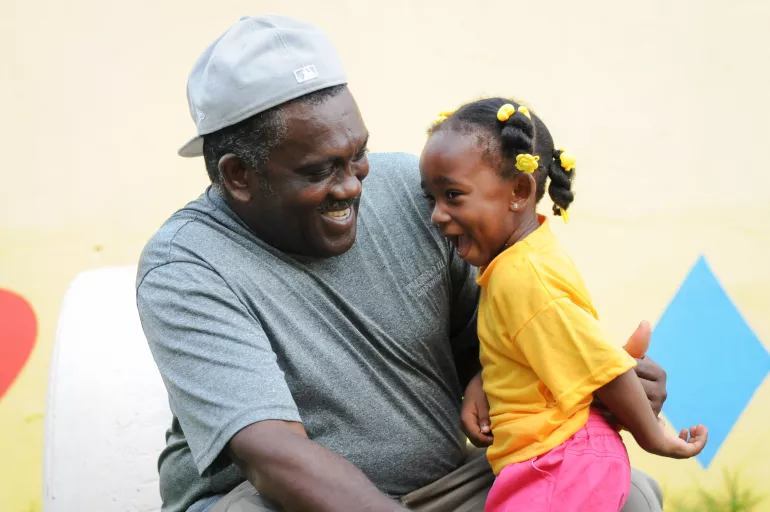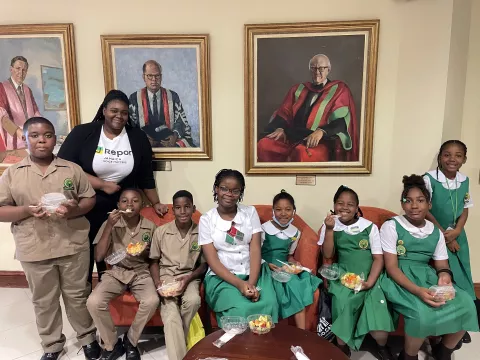What is the summer slide? This is the tendency for children, especially those in low-and middle-income families, to lose their educational achievements during the summer because they are not in structured activities. According to global data, students in low-income families lose approximately three months of learning and those in middle- income families lose approximately one month.
Yes, the summer holidays are a welcome break for parents, teachers and students but a long break from school can also negatively impact children and the educational progress they made during the school term.
All it takes is a few minutes each day to support your children’s educational development during the summer.
Follow our social media @unicefjamaica and try our weekly “Summer Sparks” together. Scan the QR code to register. It will take you to our brand new Learning Passport Jamaica platform to access some fun, summer resources.
In addition, try some of the simple ideas listed below:
-
READ a little every day – Turn off the TV/computer for a bit to lead by example. Let your children see you reading. Visit the data free site www.jls.gov.jm/bookstart-ja to access Ministry of Education and Youth approved books and videos for young children through 9th grade. The main www.jls.gov.jm site has access to books for older readers too. Reading keeps children’s minds alert and ready to learn when they return to school. You can even try our accessible digital texts at bookfusion.com and read books that include sign language.
-
WRITE a little every week – Encourage your child to write letters, write out words, help make the grocery list, keep a summer journal, make a summer book of their own stories and illustrate it.
-
PRACTISE with the MATH all around us – When shopping for food, ask children to estimate total cost of items. Make up math word problems. Look for mathematical shapes in your environment.
-
PLAY every day – Balance screen time and outside time and teach teamwork and patience. If you can, try to make sure your children get at least 30 minutes of physical activity each day. Make exercise a habit and make it fun. There are so many options for games. Check out our list of family game based activities.
-
WATCH and DISCUSS educational programmes – Try to balance fun programmes with educational ones.
-
HELP at home – Encourage children to create their own summer jobs by helping around the house. Pay them for their chores in cash or kind or come up with a business idea and work at it.
-
HELP in your community – This could be organising a food drive, sorting through clothes and toys to donate etc. This teaches children to give back to their community and to think of others.
-
COMMIT to exploring an interest – Summer is a perfect time to try new things and for older children, many free online courses exist at coursera.org or edx.org
-
COMPLETE a family project – A garden, a scrapbook or both! Plant a tree – get free seedlings from the Forestry Department. Grow a garden of healthy foods and make family meals together, noting favourite recipes.
-
VISIT museums, heritage sites – virtually. Check out local treasures at the National Museum Jamaica, National Gallery of Jamaica, Jamaica National Heritage Trust and international ones for younger kids and for older kids.
Summer is a fun time for children. Let us ensure we make it educational as well so that they don’t lose out on their academic progress.
Parents! You got this!
What UNICEF's doing
As part of overall support to the Ministry of Education and Youth’s Learning Recovery efforts, UNICEF continues to work on teacher training, particularly in mental health and wellness, and on the development of the Learning Passport Jamaica (LP Jamaica), an online and offline, mobile platform that enables continuous access to quality education. In its first phase, the LP Jamaica will support specific catch-up learning for grades 1-3.





